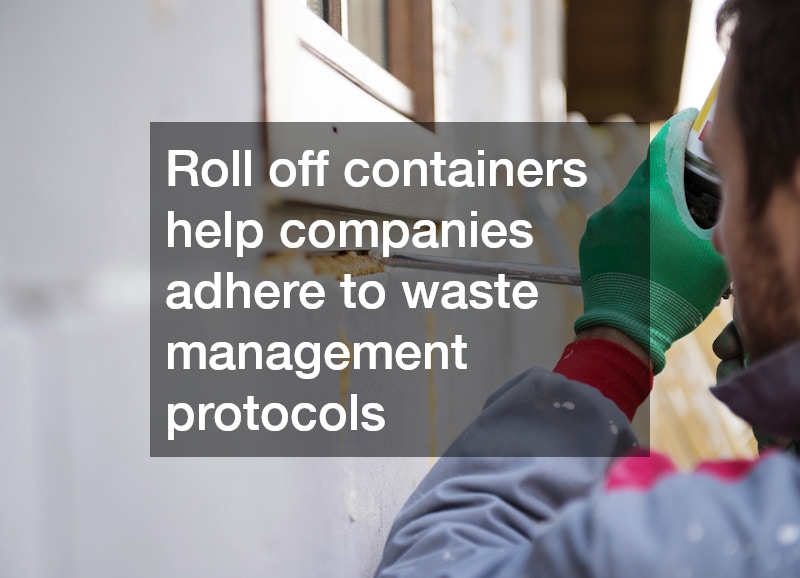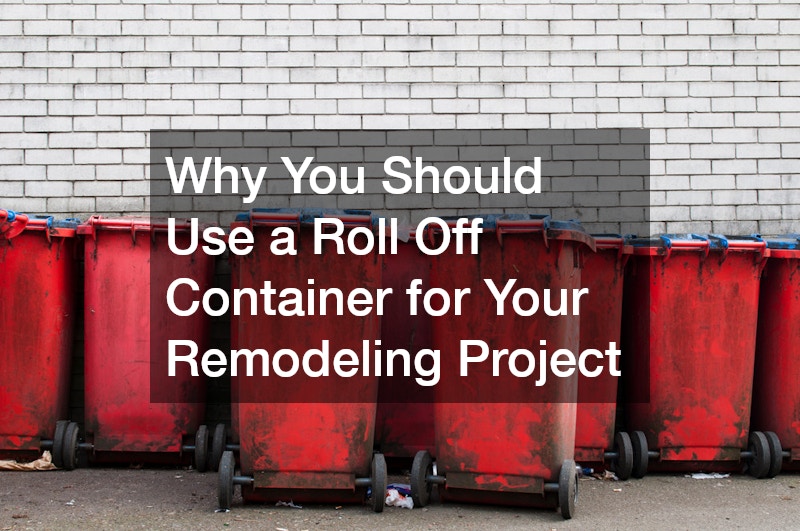Definition of a Roll Off Container
A roll off container, commonly referred to as a dumpster, is a large rectangular waste receptacle with an open top. These containers are primarily used for collecting large quantities of waste material from construction, renovation, demolition, or clean-outs. The open-topped design allows for easy disposal of bulky items without the need for a lid or access hatch.
Roll off containers are typically made from heavy-duty steel and are designed to withstand the harsh conditions of industrial and construction environments. They are available in various sizes, typically ranging from 10 to 40 cubic yards, to accommodate different project requirements.
The primary function of a roll off container is to facilitate the efficient and safe removal of waste from a job site. Once filled, these containers are loaded onto specially designed roll off trucks that transport them to designated disposal facilities. The unique feature of a roll off container is its rolling design, allowing it to be rolled off the back of a truck instead of lifted. This design minimizes both the labor and time required for waste disposal, making roll off containers an essential tool for waste management professionals. By offering ease of use and significant capacity, they cater to the needs of both small-scale and extensive clean-up projects.
Understanding the different components of a roll off container can help in making the most effective use of this equipment. The containers feature a reinforced bottom to support heavy loads and withstand accidental impacts during transport and handling. Side walls are structured to prevent any spillage of waste material, ensuring every load is contained and transported safely. Most roll off containers come equipped with rear doors that swing open to allow ground-level loading, adding more convenience in certain use cases. Additionally, the robust construction of roll off containers makes them durable, offering long-term service life with proper maintenance.
Advantages of Using Roll Off Containers
One of the greatest advantages of using roll off containers is their capacity to hold substantial amounts of waste, reducing the frequency of waste removal trips. This capacity not only saves time but also minimizes the environmental impact associated with transport emissions. Efficiency in waste management is indispensable on large-scale construction projects or community clean-up initiatives, where waste can be generated at significant rates. The practical design of roll off containers further enhances usability, allowing for expedited loading and unloading processes. They ensure that even large and odd-shaped debris, such as furniture, concrete blocks, or tree branches, can be disposed of with relative ease.
Another key benefit of roll off containers is their portability and ease of transportation. Since roll off trucks can drop and pick up these containers without needing additional equipment, operations are streamlined and costs are reduced. Portable containers mean accessibility to difficult or tight spaces where traditional waste management solutions might be impractical. This accessibility is particularly advantageous for urban construction projects where space is at a premium. Furthermore, their adaptable nature allows for deployment in various settings from residential neighborhoods to large-scale industrial sites.
Roll off containers also contribute to better compliance with waste disposal regulations. Proper use of these containers reduces the risk of contamination and illegal dumping, which can result in hefty fines and penalties. Waste professionals can easily segregate materials into different roll off containers, ensuring recyclable materials are processed appropriately. This organization helps improve recycling rates and reduces reliance on landfills, supporting sustainability goals. Moreover, because these containers are widely used and accepted, they facilitate cooperation between waste producers and disposal services providers, promoting more systematic waste management practices.
Common Uses of Roll Off Containers
Roll off containers are highly versatile and find applications in numerous industries. Construction and demolition projects are the most common scenarios for their use, as these sites produce large volumes of waste requiring prompt removal. Renovations, whether for homes or businesses, also generate substantial amounts of debris that need efficient disposal solutions. In addition to commercial applications, private residents commonly rent roll off containers for significant home clean-outs or landscaping projects. Event organizers, too, often rely on roll off containers to manage waste from large gatherings efficiently.
Roll off containers play a critical role in disaster clean-up operations as well. After natural disasters like hurricanes, floods, or earthquakes, communities face the daunting task of managing debris and wreckage. Quick mobilization of roll off containers allows for timely and effective sorting, removal, and disposal of waste materials. This rapid response helps restore normalcy and prevents waste from becoming a public health threat. Ensuring wide availability and deployment of roll off containers can significantly enhance disaster recovery efforts.
Agricultural and industrial sectors also leverage roll off containers to maintain operational efficiency. Agricultural waste, such as plant debris and other organic matter, requires dependable disposal methods to keep fields ready for subsequent planting cycles. For industrial applications, managing residue from manufacturing processes is vital for maintaining clean and safe facilities. With proper usage, roll off containers help companies adhere to waste management protocols and improve overall cleanliness and safety on-site. These containers offer a practical and scalable solution for a diverse array of waste management challenges, supporting a cleaner and more sustainable environment.
.

